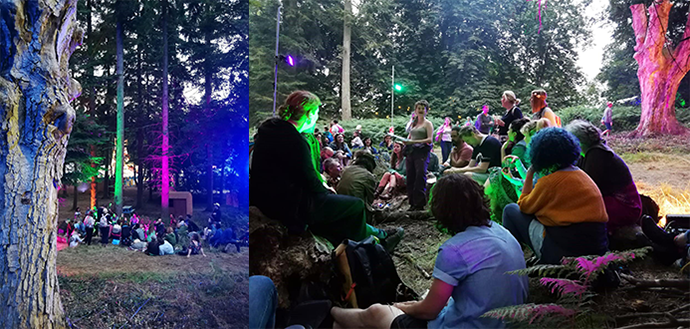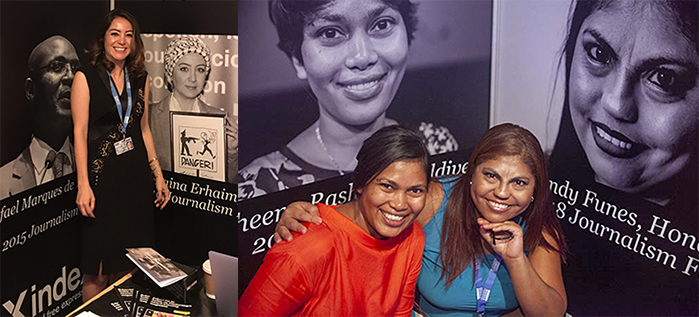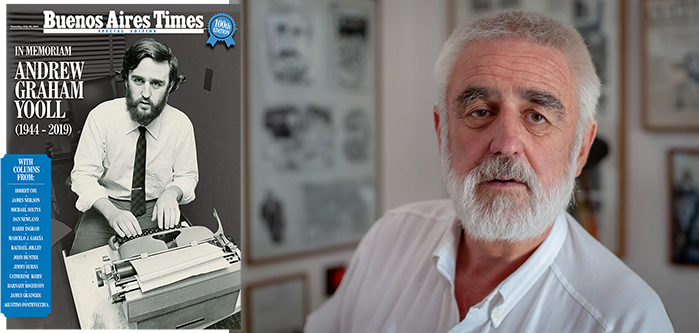Russia: Press freedom violations July 2019
[vc_row][vc_column][vc_column_text]
Index on Censorship’s Monitoring and Advocating for Media Freedom project tracks press freedom violations in five countries: Azerbaijan, Belarus, Russia, Turkey and Ukraine. Learn more.
[/vc_column_text][vc_custom_heading text=”32 Incidents” use_theme_fonts=”yes”][/vc_column][/vc_row][vc_row][vc_column][vc_column_text]
MBH Media journalist charged for cooperation with “undesirable organisation”
30 July 2019 – In Ust-Labinsk, in the Krasnodar region, police searched the house of local journalist Alexandr Savelev and seized his phone, Mediazona reported.
Savelev was taken to the police station for questioning and later released. The next day he was detained and charged with cooperation with undesirable organisation, which is punishable with up to six years in jail.
The police believe that the news outlet MBH-Media that Savelev was reporting for is connected to Open Russia, which is considered an “undesirable organisation” by Russian authorities.
The journalist believes that the criminal case against him is connected to his professional activities, including his investigations into corruption in the region.
Categories: Criminal Charges/Fines/Sentences
Source(s) of violation: Police/State security
Police detain journalists reporting on Navalny’s alleged poisoning
28 July 2019 – Daniil Sotnikov, reporter with independent broadcaster Dozhd, and photographer Gerogy Markov were detained, despite carrying valid press cards, while reporting on the alleged poisoning of opposition leader Alexey Navalny. Police detained the journalists near the hospital where Navalny was taken.
Markov said he was also beaten by policemen and his camera was broken.
Background:
28 July 2019 – Opposition leader Alexey Navalny was allegedly poisoned in jail, where he was under 30 days arrest for organising unsanctioned protests. He was hospitalised on the fourth day of his arrest with symptoms initally described as an “acute allergic reaction.” Later the main immunologist-allergist in Moscow diagnosed him with “contact dermatitis in the facial area and angioedema of the paraorbital area”.
Navalny’s doctor published a post on Facebook criticising the official diagnosis. She said she had attempted to examine Navalny, but was not allowed to. She wrote that, since Navalny does not suffer from any allergies, that he ate the same hospital food as the rest of the patients and did not use any new perfume or hygiene products, this could be “the result of the damaging effects of unspecified chemicals”.
Links:
https://zona.media/news/2019/07/28/razgon?fbclid=IwAR1TP3JwGalq7EMY13aaGsGM9h5Hwr9gvDj139JEXdJ3MIYsjSiU8AiSrYE
https://t.me/mbkhmedia/11668
Background links:
https://www.facebook.com/story.php?story_fbid=2431075110337317&id=100003045553668
https://t.co/rAhclAYeoq
https://meduza.io/feature/2019/07/28/aleksey-navalnyy-vo-vremya-ocherednogo-aresta-popal-v-bolnitsu-ego-lechaschie-vrachi-somnevayutsya-v-ofitsialnom-diagnoze-chto-proishodit
Categories: Arrest/Detention/Interrogation; Physical Assault/Injury
Source of violation: Police/State security
Journalists assaulted while covering mass protests in Moscow
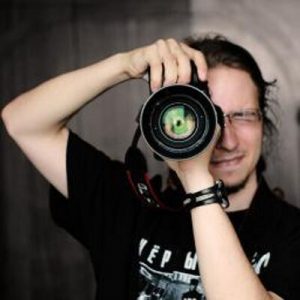
Evgeny Feldman
22 July 2019 – At least six journalists were injured by policemen during a violent crackdown on demonstrators, who took to the streets to protest against the disqualification of independent candidates to the Moscow City Parliament, Meduza reported.
Evgeny Feldman, a photographer who was covering the protests for Meduza. Feldman’s camera was struck by a policeman and his nose was injured in the process.
Alexandr Soloukhin, a cameraman working with YouTube vlogger Ilya Varlamov, said that he was also hit in the nose when the police surrounded the protesters and started beating them with the batons.
Balaram Usov, editor of student magazine DOXA, was hit in the head with a baton and then his arm was injured when he was pushed and pinched by a door; later he sent to a hospital from a police station.
Photographer Valery Tenevoy was beaten in a police van, wVD-Info reported.
RBC journalist Elena Sheveleva reported that she was hit by a policeman and a reporter working for Meduza said that an officer twisted Sheveleva’s arm.
Links:
https://twitter.com/EvgenyFeldman/status/1155159056908214277
https://twitter.com/varlamov/status/1155150622406168577
https://ovdinfo.org/articles/2019/07/27/dopuskay-itogi-akcii-storonnikov-kandidatov-v-mosgordumu
Categories: Physical Assault/Injury
Source of violation: Police/State security
Dozhd website suffers DDoS-attack
27 July 2019 – Independent broadcaster Dozhd reported a DDoS attack on its website during live coverage of mass protests against the disqualification of independent candidates to Moscow city parliament.
Links:
https://tvrain.ru/news/sajt_dozhdja_podvergsja_ddos_ataka-490401/
Categories: DDoS/Hacking/Doxing
Source of violation: Unknown
Police summon TV Dozhd editor-in-chief for questioning
27 July 2019 – Policemen raided a studio belonging to independent broadcaster Dozhd while it was covering mass protests against the disqualification of independent candidates to Moscow city parliament, Meduza reported.
The broadcaster’s editor-in-chief Alexandra Pospelova was summoned for questioning as a witness in a criminal case opend under the article 141 of the Criminal Code of Russia – obstruction of the activity of elections committees. This case had been opened after mass protests in support of the independent candidates to Moscow city parliament, who revealed widespread inconsistency in the election commission’s actions after they were rejected the registration on the grounds of submitting false signatures.
Links:
https://meduza.io/news/2019/07/27/politseyskie-prishli-v-studiyu-dozhdya
Categories: Arrest/Detention/Interrogation
Source of violation: Police/State security
Police detain Navalny Live host during live coverage of mass protests
27 July 2019 – Policemen broke into a studio of YouTube channel Navalny Live, run by the team of the opposition leader Alexey Navalny during the live coverage of mass protests against the disqualification of independent candidates to Moscow city parliament – the video of the incident was posted by Ilya Pahomov on Twitter. Later the host of the channel’s Vladimir Milov reported that he was detained at a police station.
Видео, как полиция врывалась в студию @navalnylive, откуда велась прямая трансляция акции на Тверской. pic.twitter.com/4Wbh0sP8cK
— Ilya Pahomov (@ilyapahomov) July 27, 2019
Links:
https://meduza.io/news/2019/07/27/politsiya-vorvalas-v-studiyu-navalnyy-live
https://twitter.com/v_milov/status/1155104996062629889
Categories: Arrest/Detention/Interrogation
Source of violation: Police/State security
Ilya Azar detained in Moscow at mass protest
27 July 2019 – Novaya Gazeta special reporter and a municipal deputy Ilya Azar was detained in Moscow during the mass protests against the disqualification of independent candidates to Moscow city parliament, despite presenting his press-card to the police – which was recorded in the video published by witnesses.
Links:
https://meduza.io/news/2019/07/27/zaderzhan-zhurnalist-novoy-gazety-ilya-azar
Categories: Arrest/Detention/Interrogation
Source of violation: Police/State security
Police told journalists to get accreditation to cover mass protests in Moscow
25 July 2019 – The press-service of Ministry of Interior Affairs of Moscow published a statement, asking media managers to send to the police the data of the journalists who would be covering the mass protests against the disqualification of independent candidates to Moscow city parliament on 27 July.
The director of the Center of Defense of the Rights of Media, Galina Arapova, called it “meddling into professional independence of the editorial offices” and stressed that according to the law, journalists can cover protests and other actions without any coordination with the police. Arapova also warned that submitting such data to the police may threaten the security of the journalists: “We understand, that there were cases when police came to the organisers or alleged participants ahead of the mass actions. Where is the guarantee that they will not come to a journalist ahead of the event, that something won’t happen to him/her and he/she won’t get to the event place? Why does the police need to know the names of those people?”
The police also asked the journalists to carry with them not only press-cards but a printed editorial assignment from their publication. If they don’t have such assignments, police threatened them with sanctions. Arapova also believes the requirement is illegal: “Detention in this case will be absolutely illegal. According to the Article 47 of the Media Law, journalists have special rights. This is an inalienable professional right. Even without a special assignment. You walked, saw something happening, and started filming. This right is granted to you by the specifics of the professions and the federal law.”
Links:
https://77.мвд.рф/news/item/17697354/https://whitenews.press/?p=5798&fbclid=IwAR3CgUp0WfT8DzpEh7wQ96A30onTcZcePuqk5RLu7IqhDP24Zp2Iu8GxKMc
Categories: Intimidation
Source of violation: Police/State security
Administrative case about “participation in the activity of undesirable organisation” opened against the founder of Samara newspaper
26 July 2019 – Yulia Illarianova, director of the founding organisation of Park Gagarina, a local newspaper in Samara, was handed a protocol about the opening an administrative case against her about “participation in the activity of undesirable organisation” because of two news articles mentioning Open Russia (recognised as undesirable organisation in Russia since April 2017) that ran in Park Gagarina. One of the articles appeared in October 2017, the other in January 2019.
Links:
https://www.facebook.com/GlasnostDefense/photos/a.849220988467446/2591652674224260/?type=3&theater
Categories: Criminal Charges/Fines/Sentences
Source of violation: Police/State security
Yakutsk journalists fined for article about torture
25 July 2019 – A Yakutsk city court fined Mikhail Romanov, a journalist with local weekly newspaper Yakutsk Vecherny, 30,000 rubles ($473) for “for abusing the freedom of information”, Interfax reported.
In April, Romanov wrote and published the an artucle with the headline “The victim of the regime” about an employee of a local university who was kidnapped and tortured by Federal Security Service (FSB) officers for leaving critical comments on social media. After the publication, a district police officer came to the editorial office several times to question Romanov, but the journalist refused to testify without official summoning.
Then the policemen opened an administrative case against the journalists under the article 17.7 (insubordination to the legal requirements of a representative of the authorities) and later another one under the article 13.15 (abusing the freedom of information). According to the officer, Romanov’s phrase in the published article “This is a story about the fact that everyone can get into the millstones of the state machine. And about the fact that Big Brother watches, reads all the comments on the forums…” contained hidden inserts, affected people’s subconsciousness and had a harmful effect on them.
Links:
https://www.interfax.ru/russia/670353
https://www.kommersant.ru/doc/4041316
Categories: Criminal Charges/Fines/Sentences
Source of violation: Court/Judicial; Police/State security
Two reporters charged with failure to comply with judge’s orders
24 July 2019 – Reporters of Telegram-channels AvtozakLIVE and Bessrochny Protest were charged with failure to comply with the order of the judge or bailiff to ensure the established order of the courts and pushed out of the court room, where they were covering trial of Alexandr Archagov, charged with organisation of unsanctioned protest against the disqualification of independent candidates to Moscow city parliament, OVD-Info reported.
Links:
Categories: Criminal Charges/Fines/Sentences
Source of violation: Court/Judicial
Grani.ru reporter expelled from court for real time reporting
24 July 2019 – Alim Suleimanov, a reporter with Grani.ru, was expelled from North Caucasus District Military Court for live reporting for Facebook group “Crimean Solidarity” on the trial of Crimean activist Nariman Memedinov, according to journalist Anton Naumlyuk.
Suleimanov was expelled on the grounds of not getting permission to conduct real time reporting, however such permission is not needed for real time text reporting (only for video). Suleimanov was not charged officially.
Links:
https://www.facebook.com/anton.naumliuk/posts/2623886230979634
Categories: Blocked Access
Source of violation: Court/Judicial
Dagestan-based journalist charged with financing terrorism
23 July 2019 – Abdulmumin Gadzhiev, a journalist with Dagestan regional newspaper Chernovik, was charged with financing terrorism, according to Pavel Chikov, the head of human rights group Agora.
According to the offical investigation, Gadzhiev conspired with others, including an exiled Islamic preacher Israil Akhmednabiev to fundraise money for the Islamic state in 2011. Investigators allege that as part of the scheme Gadzhiev published news reports on the charitable activities of Akhmednabiev’s Ansar fund between 2011 to 2019. The investigators said they believe that Gadzhiev knew that part of the funds was being transferred to the Islamic state in Syria. Authorities believe that over 6 million rubles (almost $95,000) were donated to Ansar by deceived members of the public.
Gadzhiev was detained on 14 June. The journalist and his colleagues claim that he is innocent. The investigators said that his guilt is confirmed by testimonies of others accused in these case – a lawyer of one of them said that he testified under torture.
Links:
https://zona.media/news/2019/06/16/dagestan
Categories: Criminal Charges/Fines/Sentences
Source of violation: Court/Judicial; Police/State security
The court blocks Snob’s test about corruption
19 July 2019 – The Kirovsky district court of Tomsk ruled the Russian state media regulator, Roskomnadzor, could block access to a “test” about corruption, published by Snob magazine in November 2017.
The lawsuit against Snob was filed in May 2019 by a city prosecutor of Asinovsk, who demanded to block access to the test — “How to give and take bribes properly. Test-instruction for a beginner official” — because “committing actions posted on the website are punishable with criminal and administrative responsibility, and the distribution [of such information] violates … the constitutional rights of an indefinite number of persons to freely seek, receive, transmit, produce and disseminate information in any legal way guaranteed by the Constitution of the Russian Federation”.
Snob argued that all the questions in the test are based on real corruption cases, and the test was published as a response to the news that the state budget lost 19 billion of rubles ($300 millions) due to the corruption.
Links:
https://snob.ru/selected/entry/130778/
Category: Censorship
Source of violation: Court/Judicial
Court bars journalists from covering public trial
18 July 2019 – In Tyumen, Justice of the Peace Natalya Buslovich barred journalists from covering the open trial of Timur Muratov, an alleged son of the former head of the police in Kalininsky city district, who is accused of murder threats, Znak.com reported.
Muratov’s lawyer filed a motion with the court to bar journalists, which was supported by the prosecutor in the case. Despite the objection from the victim’s lawyer, that the trial was open, the justice of the peace asked attending journalists to leave the court room and said prohibited press outlets from publishing about the trial before the final hearing.
Links:
Categories: Blocked Access
Source of violation: Court/Judicial
SotaVision journalist assaulted and detained by police during protest in front of Reutov court
17 July 2019 – Oleg Elanchik, reporter with online-broadcaster SotaVision, was detained during a crack down on a demonstration in support of an opposition activist that took place front of Reutov court, OVD-Info reported.
According to Elanchik, who was accredited to work in the court, he saw about 16 officers of Rapid Response Group of the Bailiff Service of the Moscow Region disperse about 30-40 people who came to support opposition activist Evgenoy Kurakin, whose case was being heard in the court that day. Elanchik started to film the aggressive tactics of the officers, when three of them attacked him and tried to take away his phone.
According to the journalist, they “inflicted weak blows, applied a suffocating technique, twisted arms, stepped on the foot”, then dragged him to a police station and drew up a protocol against him about “disobeying a bailiff’s legal order”. Elanchik said that he saw another journalist with “a press-card hanging on his neck” among other detainees.
Elanchik said he received minor injures and has filed a report with the police: “I have abrasions, bruises, scratches. I went to the emergency room, I have a certificate”.
Links:
Categories: Arrest/Detention/Interrogation
Source of violation: Court/Judicial
Journalists detained on request from Vilyusk mayor
16 July 2019 – A film crew working for local broadcaster Yakutia 24 was detained by police in Vilyusk while interviewing people on the state of the city’s roads, the broadcaster reported.
“We were surveying the residents of Vilyuisk about the condition of the roads. A precinct policeman approached us and said that the mayor, Nyurgustan Afanasyev, filed a complaint with police against me and the cameraman, and asked us to go to a police station with him. We agreed and asked about the reason for the detention”, reporter Evgeniy Toytonov said.
Earlier the same day the journalists visited the mayor Afanasyev to ask about the condition of the roads. “The mayor was not inclined to give us any comments from the very beginning, he prohibited to film him”, Toytonov said. After the journalist asked Afanasyev about the road works, the mayor asked to talk “about something good” instead and then pushed the reporter and the cameraman out of his office and called the police.
UPDATE:
17 July 2019 – Afansyev said that he called the head of Yakutia 24 and apologised for the incident, explaining that he called the police to ask them to identify the journalists, whose credentials he did not believe to be real. “We worked well with the broadcaster before that incident. I did not think that the journalists were its employees”.
The press-office of Vilyusk police confirmed the mayor’s complaint asked the police to “identify two unknown men who conducted video recording in the city administration without his agreement and despite his refusal to give an interview”.
Alexandr Kalugin, representative of the media holding company that owns Yakutia 24, said that it is clear in the video that the journalists identified themselves.
Links:
Categories: Arrest/Detention/Interrogation
Source of violation: Police/State security; Government/State Agency/Public official(s)/Political party
Ingush journalist arrested for 2 months on drug charges
16 July 2019 – A court in Magas ordered the arrest of Rashid Maysigov, a journalist with Ingushetia regional media outlet Fortanga, who was covering mass protests in the republic, his lawyer Magomed Aushev told Kavkaz Uzel. Maysigov faces two months in detention on the drug charges.
Maysigov was detained on 12 July and accused of drug dealing in larged quantities under the article 228, part 2 of the Criminal Code of Russia. After the detention, the journalist filed a complaint saying he had been tortured by policemen.
Maysigov’s lawyer said that supporters of the journalist were not allowed to attend the hearing, despite the trial being open to public.
Links:
https://www.kavkaz-uzel.eu/articles/337931/
Categories: Arrest/Detention/Interrogation
Source of violation: Police/State security; Court/Judicial
Journalists barred from meeting of independent candidates and elections committee
15 July 2019 – Mikhail Mokrov, the press-officer of the Moscow City Elections Committee, said that the journlaists would be barred from covering a meeting with independent candidates to the Moscow city parliament, who were earlier rejected for registration on the grounds of submitting false signatures in support of their candidacy, Dozhd reported.
The candidates claim that the Moscow City Elections Committee’s officials purposely disallowed valid signatures to bar independent candidates from running in the election. The conflict resulted in a mass protest in support of the independent candidates.
After the protests, the Moscow City Elections Committee officials invited the candidates to a meeting. One of the candidates, Lyubov Sobol, invited journalists to attend, saying such meeting should be open and public.
However, the Moscow City Elections Committee said that it doesn’t plan to organise any events “for press”.
Links:
Categories: Blocked Access
Source of violation: Government/State Agency/Public official(s)/Political party
Dozhd reporter detained at mass protest in Moscow
14 July 2019 – Alexey Korostelev, a reporter with independent broadcaster Dozhd, was detained by police while covering mass protests against the disqualification of independent candidates to the Moscow city parliament.
Dozhd published the video of the incident. Korosteleve identifies as press, but was nevertheless detained.
Links:
Categories: Arrest/Detention/Interrogation
Source of violation: Police/State security
Roskomnadzor blocks Ingushetia regional media outlet Fortanga
14 July 2019 – Ingushetia regional media outlet Fortanga, which covered mass protests in the republic caused by a border dispute, was blocked by Roskomnadzor, Russia’s state media regulator, journalist Izabella Evloeva told MBH-Media. According to Evloeva, Fortanga had not received any prior notifications from the regulator.
According to Roskomnadzor’s list of banned websites, the blocking relates to a ruling by the Batay city court from 29 November 2013; however Fortanga was founded only in 2018.
According to MBH-Media, that the court order relates to a post containing extremist content. Fortanga later reported that they found the referenced extremist content in a comment posted to Fortanga’s page on the Vkontakte social network. Fortanga deleted the comment and informed Roskomnadzor about it. The media outlet was unblocked later the same day.
Links:
Categories: Legal Measures
Source of the violation: Government/State Agency/Public official(s)/Political party
Perm regional authorities proposed reform that would increase their influence on local media
11 July 2019 – Perm regional authorities proposed a reform that would consolidate the region’s media and broadcasters under a registered non-governmental organisation, Kommersant reported.
The authorities say that it would increase the funding for the regional media. Critics argue that it would monopolise the press market in the aread and would deprive private newspapers of state support, automatically redirecting state contracts to the newly formed regional outlets.
Links:
Categories: Legal Measures
Source of violation: Government/State Agency/Public official(s)/Political party
Journalist beaten in a fake queue to election commission in St Petersburg
9 July 2019 – Journalist Alexey Radkov was assaulted by members of fake queue at the election commission in Sergyevskoe district. The individuals wanted to prevent independent candidates from registering for municipal election, OVD-Info reported.
Radkov started filming the line when one of the men punched the journalist. Radkov punched him in return, and then all members of the queue – around 15 men – started beating him. The journalist managed to escape and called the police.
According to Radkov, one of the attackers was from Chechnya, two from Dagestan – they did not have St Petersburg registration and could not be in the queue to register as municipal candidates.
Links:
Categories: Physical Assault/Injury
Source of violation: Unknown; Known private individual(s)
Three MBH-Media journalists detained near Putin’s residence
8 July 2019 – Anastasia Kulagina, Mariya Pogrebnyak and Andrey Zolotov, journalists with MBH-Media, were detained near the residence of President Vladimir Putin in Moscow region, while they were trying to film video for a report about a dilapidated wooden house next to the president’s residence, MBH-Media reported.
Policemen explained that the reason for the detention was that the journalists walked into the zone marked with stop sign, which prohibits vehicler access. The police confiscated the journalists’ passports and took them to a police station. Later the journalists were questioned by the Federal Protection Service because they “were at the protected area of the first person”.
Links:
Categories: Arrest/Detention/Interrogation; Blocked Access
Source of violation: Police/State security
Journalist detained while filming mass detention in Khokhlovskaya Square
7 July 2019 – Maxim Kondratyev, a reporter of Telegram-channel AvtozakLIVE, was detained in Moscow while filming a police raid at Yama, a public space in Khokhlovskaya Square.
The journalist was filming, but did not have a press card with him when he was detained. A policeman who interfered with him did not have a badge with a name. Kondratyev also said that he was kicked by a policeman and pushed against the police van. The journalist was taken to a police station and released after two hours with an administrative charge of jaywalking.
Links:
Categories: Arrest/Detention/Interrogation
Source of violation: Police/State security
Journalists assaulted outside treason trial
5 July 2019 – Journalists who were covering the treason trial of Alexander Vorobyov, an assistant to the Plenipotentiary of the President in the Urals Federal District, were assaulted by an unknown man, who was pushing the journalists in attempt to prevent them from filming the defendant, MBH-Media reported.
MBH-Media reporter Anastasia Olshanskaya was pushed so hard, she fell to the ground. According to Olshanskaya, the assaulter had a holster, presumably with a pistol. He refused to identify himself or answer any questions in the presence of TV reporters with video cameras, but later said “You all understand, whose trial you come to cover, right?”
Links:
Categories: Physical Assault/Injury
Source of violation: Unknown
Koza.press editor-in-chief fined for mentions of ‘undesirable organization’
5 July 2019 – In Nizhny Novgorod, Justice of the Peace Evgeny Zadkov imposed a fine of 5,000 rubles ($78) on Irina Murakhteva (Slavina), the editor-in-chief of the local media outlet Koza.press, for “participation in the activity of an undesirable organisation”, OVD-Info reported.
The case against the journalist was opened after a report to the police from an anonymous citizen, worried that the press coverage of forum Svobodnye Ludi (Free People) is a danger to the constitutional rights of Russian citizens. The materials of the case included the screenshots of Murakhtaeva’s reposts of other media materials, including about the arrest of Anastasia Shevchenko, an activist of Open Russia that was recognised as an undesirable organisation in Russia since April 2017.
Links:
Categories: Criminal Charges/Fines/Sentences
Source of violation: Court/Judicial; Police/State security
Pskov journalist included in extremists and terrorists list
4 July 2019 – Pskov journalist Svetlana Prokopieva, a reporter with Radio Svoboda and former editor of local news outlet Pskovskaya Gubernia, was included in the Rosfinmonitoring list of extremists and terrorists, her bank accounts were blocked, Prokopieva said in a Facebook post. She suggested that it means that she would soon be charged with “justification of terrorism”.
A criminal case on “justification of terrorism” was opened against Prokopieva in February after a radio programme at Ekho Moskv on which she commented on a suicide bomb attack of 17-year old student in front of the local headquarters of Federal Security Service.
Links:
http://www.fedsfm.ru/documents/terrorists-catalog-portal-add
https://www.facebook.com/svetlana.prokopyeva.9/posts/2362072540497708
Categories: Legal Measures
Source of violation: Government/State Agency/Public official(s)/Political party
Masked men attempt to access Ekho Severa editorial office
3 July 2019 – A group of 11 masked men in sportswear came to a business center, where the editorial office of Ekho Severa, local media outlet in Arkhangelsk, is located, 29.ru reported. The group attempted to gain access to the floor containing only the Ekho Severa offices, which were empty at the time.
Editor-in-chief Iliya Azovsky said that the goal of the intruders was intimidation of the journalists: “The editorial team has reasons to believe that this incident could be tied to some authors’ journalistic investigations. Almost everyday different so-called fixers come to us with requests, sometimes even with absurd ones at the first glance – to remove an article published a month ago or a new one. And I have to explain them how the internet works, that it is almost impossible to delete the information from it”.
The police launched an investigation of the incident.
Links:
https://www.youtube.com/watch?v=bvkqPZBGhPc
Categories: Intimidation
Source of violation: Unknown
Communal service company files a defamation case against Newsvo in Vologda
2 July 2019 – In Vologda, 14 employees of Magistral, a communal service company, including its director, filed a complaint with police against Newsvo, a local media outlet. The complainants accused the outlet of defamation for a post published in the blog section of the site’s website, Newsvo reported.
On 2 July two policemen visited the Newsvo office to question journalists about how social media posts are transferred to the website’s blog section. The post in question titled “Road works at the embankment started again?” was published on the website on 18 June. It contained a phrase saying that instead of cutting off the illegal grillage (the concrete pavement above the project), some “khanuriki” made a wooden formwork for stones and concrete on it. Magistral employees said in the believe that the word “khanuriki” is defamatory.
Links:
https://newsvo.ru/news/121130?fbclid=IwAR2P5fPskD3Jw7yi6lVrrft2VlXRaxoc_uJz8IL6CE4efdHEb-Tifuk_uq4
Categories: Subpoena / Court Order/ Lawsuits
Source of violation: Corporation/Company
NGO files defamation lawsuit against local newspaper
3 July 2019 – Non-governmental organisation Deti Voiny (Children of War) filed a 500,000 ruble ($7,892) defamation lawsuit against local newspaper Narodnaya Gazeta Severskogo Raiona, The Center for Protection of Media Rights reported.
The artcile in question was published in April and ran under the headline “Non-Childish Problems of ‘Children of War’ in The Region”. The article criticised the latest report on the organization’s activity. The organisation said in its suit that the article contained five defamatory phrase.
A lawyer of the Center for Protection of Media Rights says that all of them are either corroborated by evidence or phrased as an opinion.
Links:
Categories: Subpoena / Court Order/ Lawsuits
Source of violation: Corporation/Company
Homophobic group threatens journalists reporting on LGBT rights
2 July 2019 – Pila, a radical homophobic group, published an announcement that declared of the beginning of a new hunting season on LGBT-activists and journalists reporting on LGBT rights. The announcement included the editorial tearms of Novaya Gazeta and the Russian service of Radio Svoboda. Pila said the group had “prepared dangerous and cruel gifts” for those on the list, which was accompanied by images of a noose and a man with a speech bubble saying “maybe I should kill myself”.
UPDATE:
21 July 2019 – Elena Grigorieva, LGBT-activist mentioned on Pila’s list, was brutally killed in St.Petersburg.
Links:
https://takiedela.ru/news/2019/07/24/pila-lgbt/
Categories: Intimidation
Source of violation: Unknown; Criminal organisation[/vc_column_text][/vc_column][/vc_row][vc_row][vc_column][vc_basic_grid post_type=”post” max_items=”4″ element_width=”6″ grid_id=”vc_gid:1567419957765-fe9e2033-c002-3″ taxonomies=”8996″][/vc_column][/vc_row]

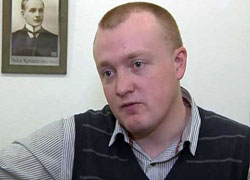
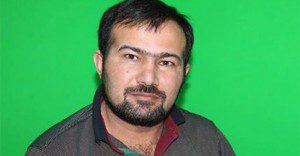
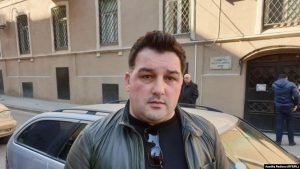 3 July 2019 – Anar Mammadov, editor for criminal.az online news site, was called in for questioning by police, Azadliq Radio reported.
3 July 2019 – Anar Mammadov, editor for criminal.az online news site, was called in for questioning by police, Azadliq Radio reported. 